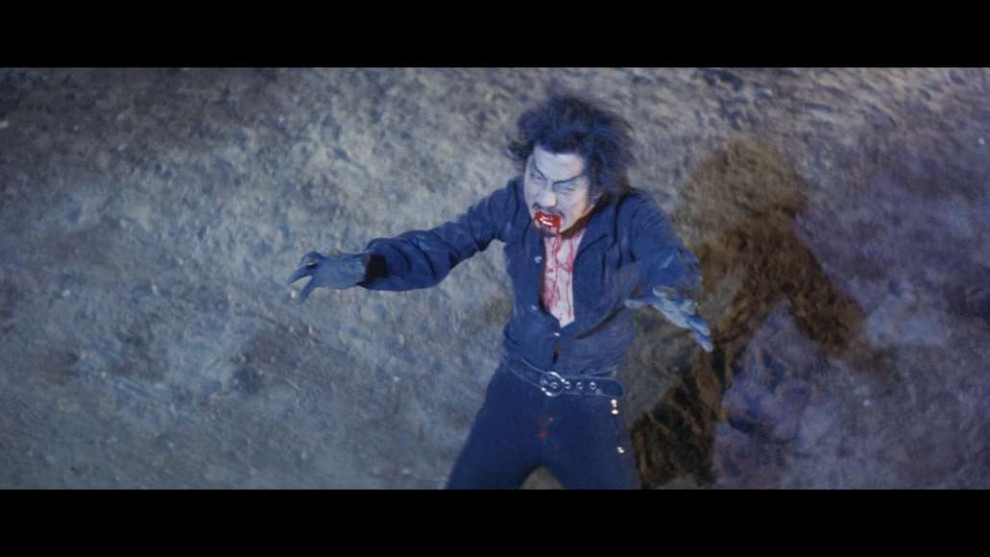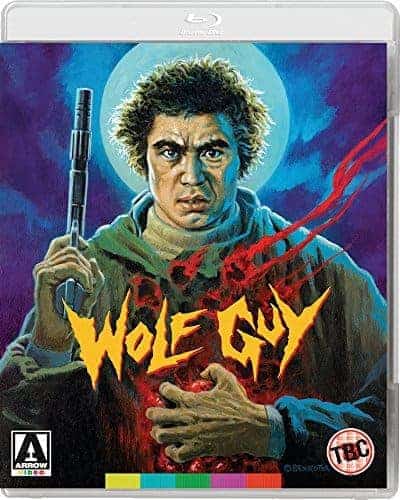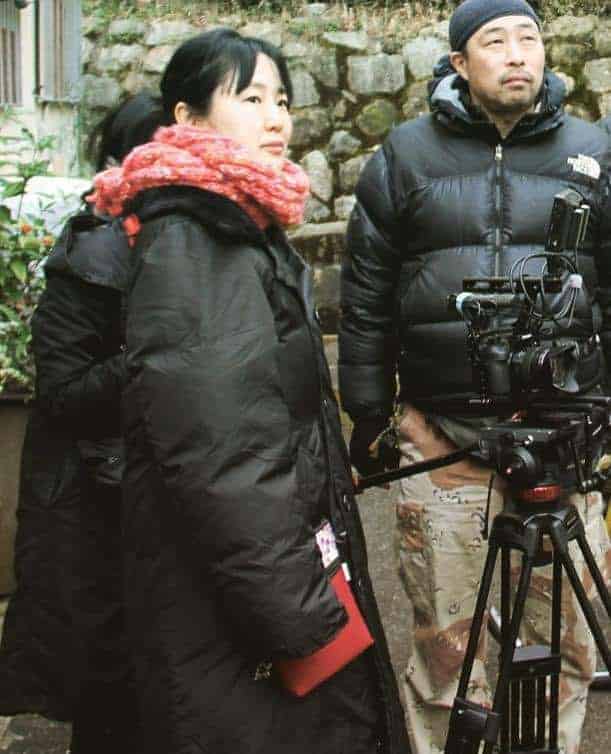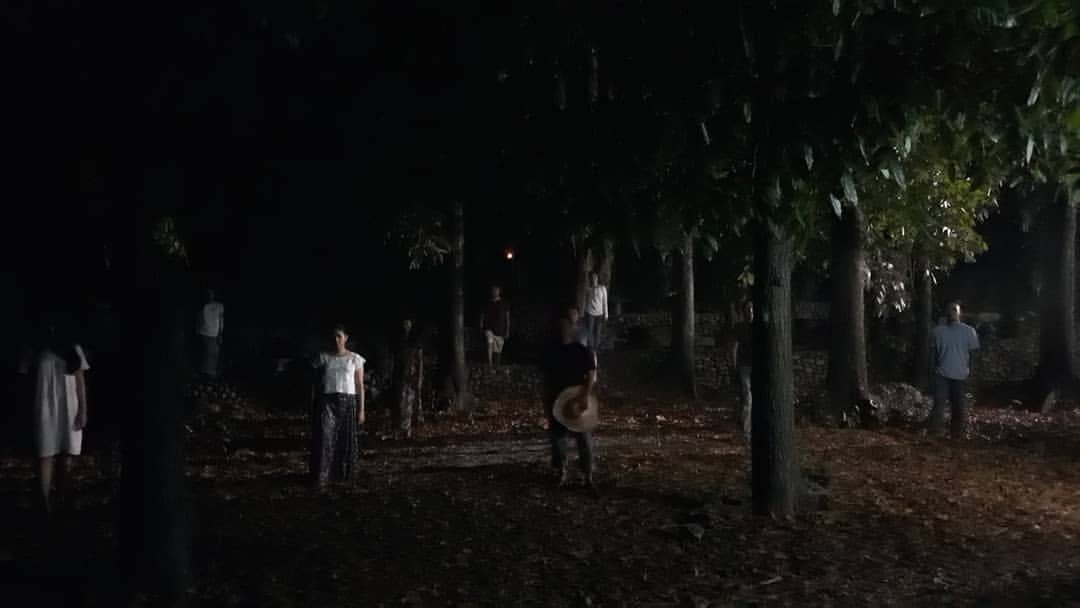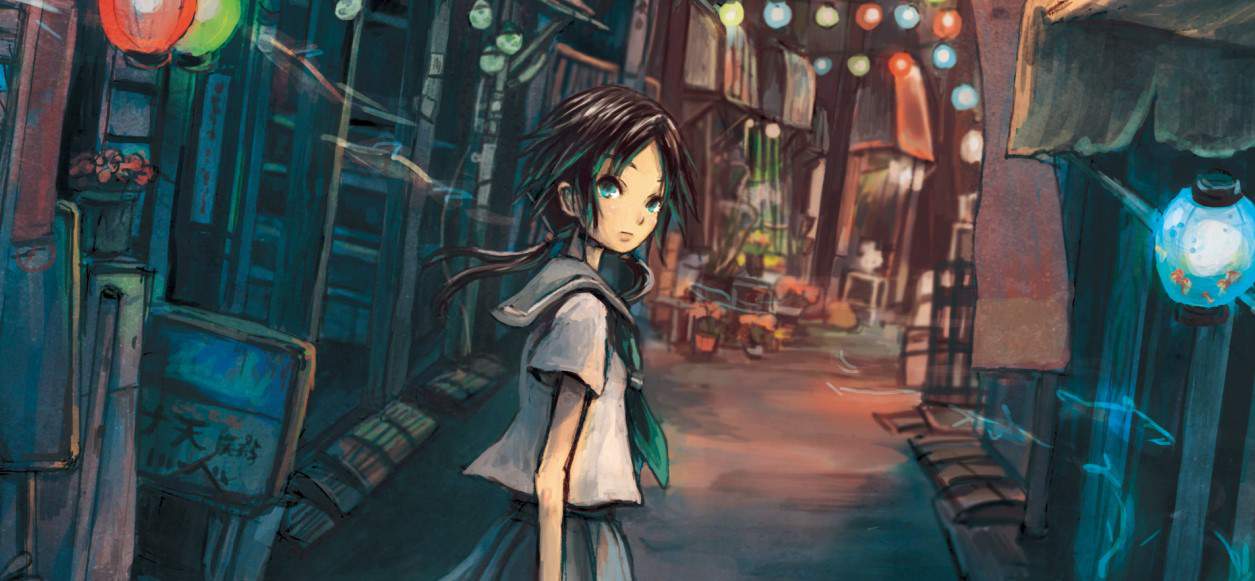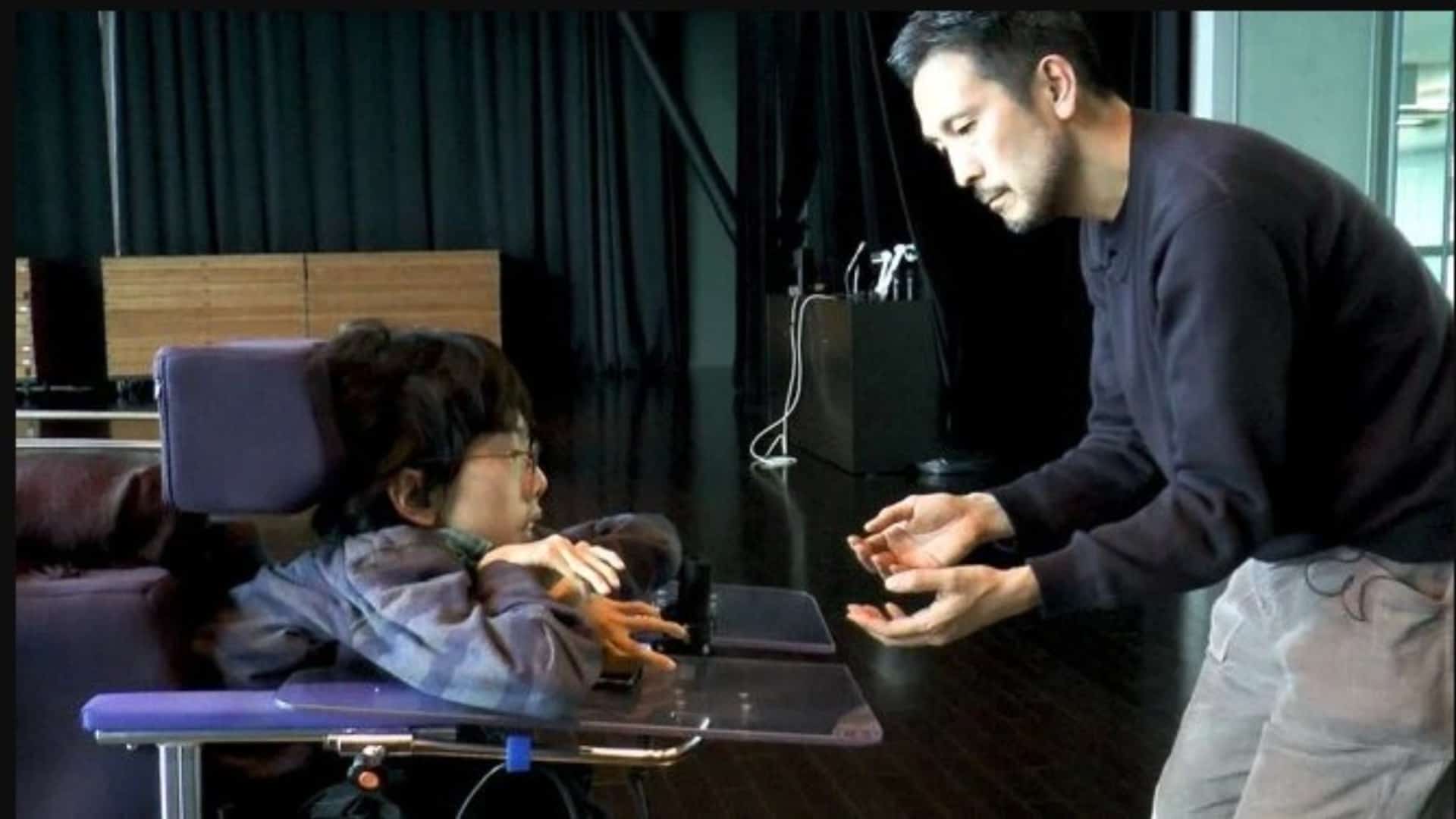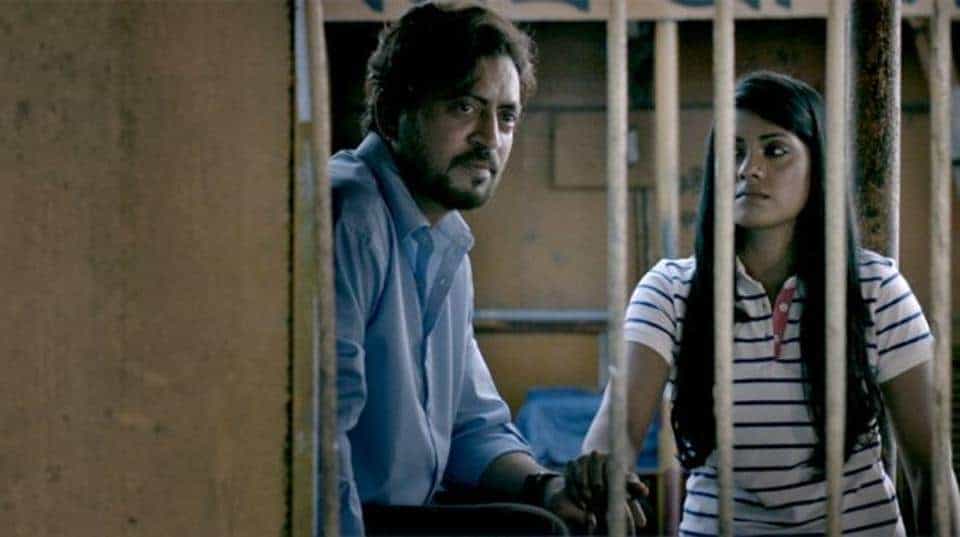Perhaps it should not come as a surprise Arrow would be the company finally giving Wolf Guy, by Japanese director Kazuhiko Yamaguchi, a home video release. Even tough it starred Shinichi “Sonny” Chiba as Akira Inugami and was based on one of the most popular manga/anime series of the country ,the film was not even given a proper release in Japan apart from a few screenings at festivals for fans. In the end, “Wolf Guy” became one of the many most wanted items by film fans, fans of Chiba as well as Japanese exploitation films.
Buy This Title
Toei, a studio which also produced the famous “Sasori”-series, was the first one which hired Yamaguchi after he graduated from film school. As usual for directors within the Japanese studio system, he worked as an assistant director before he was finally given his first film and actually spend more time on set rather than running errands for others as Yamaguchi jokingly remarks in an interview about his career. During that time, he made the acquaintance with “Sonny” Chiba and his Japan Action Club, a school founded by the actor to educate and train future actors and actresses especially with the focus on popular movies. By the time Yamaguchi started working on his first picture in 1969, Japan also saw the release of the first “Wolf Guy”-stories by Kazumasu Hirai, a line of stories which would soon find a large number of readers.
“Wolf Guy” is an interesting picture mixing action elements with horror and political conspiracy together. While largely relying on its leading star's skills, it is also a film about the jungle” of the modern world, in which, after all, the strongest still wins.

Akira Inugami (Chiba) is a reporter as well as an investigator using his superhuman strength to solve cases and crimes. Lately, he has witnessed the killings of former members of the punk band Mobs who have all been torn to pieces as if being attacked by an animal. Being the last member of a line of werewolves himself, Inugami begins his investigation using his instincts and the help of his friend Arai (Harumi Sone).
As Inugami meets singer Miki Ogata (Etsuko Nami), he is about to realize the full extent of the crime going as high as Japanese politics, powerful men who like nothing more than to keep everything quiet, and who are now on the hunt for the detective and the singer. However, as they find out about Inugami's animal nature and the particular skills of Ogata, they plan to catch them and convince them to work for them.
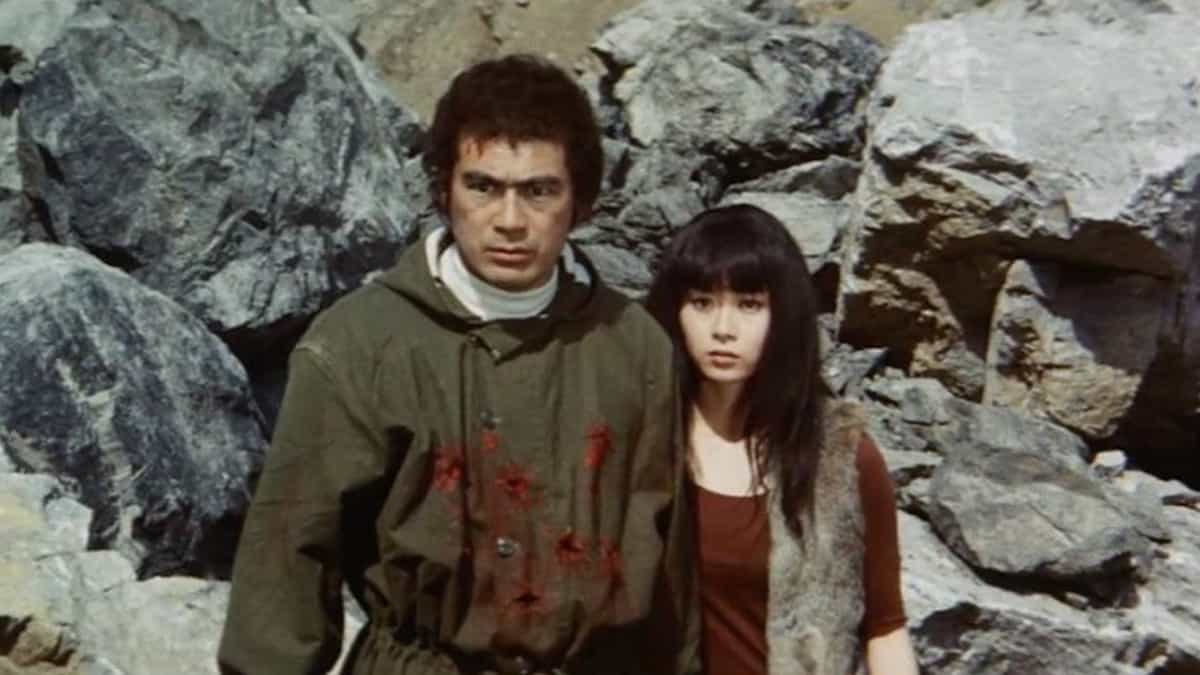
Inugami looks out the window contemplating on what he has to do next, which step will come now and what dangers might lie ahead. Of course, he is not worried about him, but more about the woman lying on the bed, Miki Ogata. Having been the victim of repeated abuse and betrayal, the vulnerable female is a mere deception for the inside which has hardened over time, the animal which has grown inside, making her, in terms of Japanese movies, something of a descendant of the countless characters Meiko Kaji has played in film like the “Sasori”-series or “Lady Snowblood”. It is a character trait Inugami knows only too well, even though his cover works the other way round, with the tough-as-nails investigator on the front and the boy who lost his parents inside still seeking for some kind of guidance in the jungle of the world. He looks at the lights of the city, the cries underneath, certain the jungle awaits them both like a hungry animal waiting to be fed.
In terms of Japanese cinema of the 1960s and 197,0 the city, most of the time Tokyo, is a jungle, a maze of streets, corners and dark places bearing many dangers. Yamaguchi's film has taken the metaphor to heart, even adding a supernatural element to it with an actual wolf and a tiger roaming the streets searching for prey, an image supported by the dynamic hand-held camera of Yoshio Nakajima. Inugami, being a survivor, has adapted to his environment, changing between his animal and human side whenever it supports any of the cases he works on. Early on, he remarks also on the necessity of controlling, taming the animal side as “hatred for humans” is the nastiest pathogen there is, one which both he and Miki can easily fall prey to, considering both have not had the best experiences with humans in the past.
However, the animal instinct is the key to survive, as the rule of the jungle only rewards the strongest creature. In this case, the most vicious predator is, of course, masculine. With Inugami defined as an exception due to his animal roots, the rest of the male cast are almost exclusively of the same sort like the wardens, Yakuza and politicians in so many of the films of that time, their descendants still being more alive than ever in the works of Takashi Miike and Takeshi Kitano. Women are easy prey to them as their physical appearance and emotions make them susceptible of being lured into traps, exploited and “thrown away” when the male predator is finished or has laid his eyes on a new female.
Miki, as well as the other female characters, have come up with strategies to counter this circle of exploitation, either being part of a powerful institution, like the police or secret service, or joining the hunters. Finding the animal within again is the best survival kit enabling to be the hunter instead of the prey, being the scorpion or the tiger preparing for the final kill or just lashing out.
Additionally and perhaps most importantly, the jungle is a place of being reborn. As the film changes its setting from the urban to the rural, the animal is put to the final test, the final task to survive and returning as someone (or something) new. And leaving the “innocent old self”, as Miki puts it, finally behind. In the end, being an animal is also not enough; the wolf may be able to survive the city, but the world, family and maybe even love, require something different.
“Wolf Guy” is a film about the jungle of the modern world, an action/exploitation-film with superb performances by Chiba, Nami and the rest of the female cast. It is the work of a director who knows what he wants and is confident about his approach, both entertaining, shocking and even emotional at times. “Wolf Guy” is an attractive amalgam of many of the popular ingredients of Japanese movies of the time, a film which deserves cult status.
Sources:
1) Macias, Patrick. Full Moon Chiba: The Resurrection of Wolf Guy (part of the Bluray-release of the movie by Arrow)
2) The interview with Kazuhiko Yamaguchi is also part of the Bluray-release.


